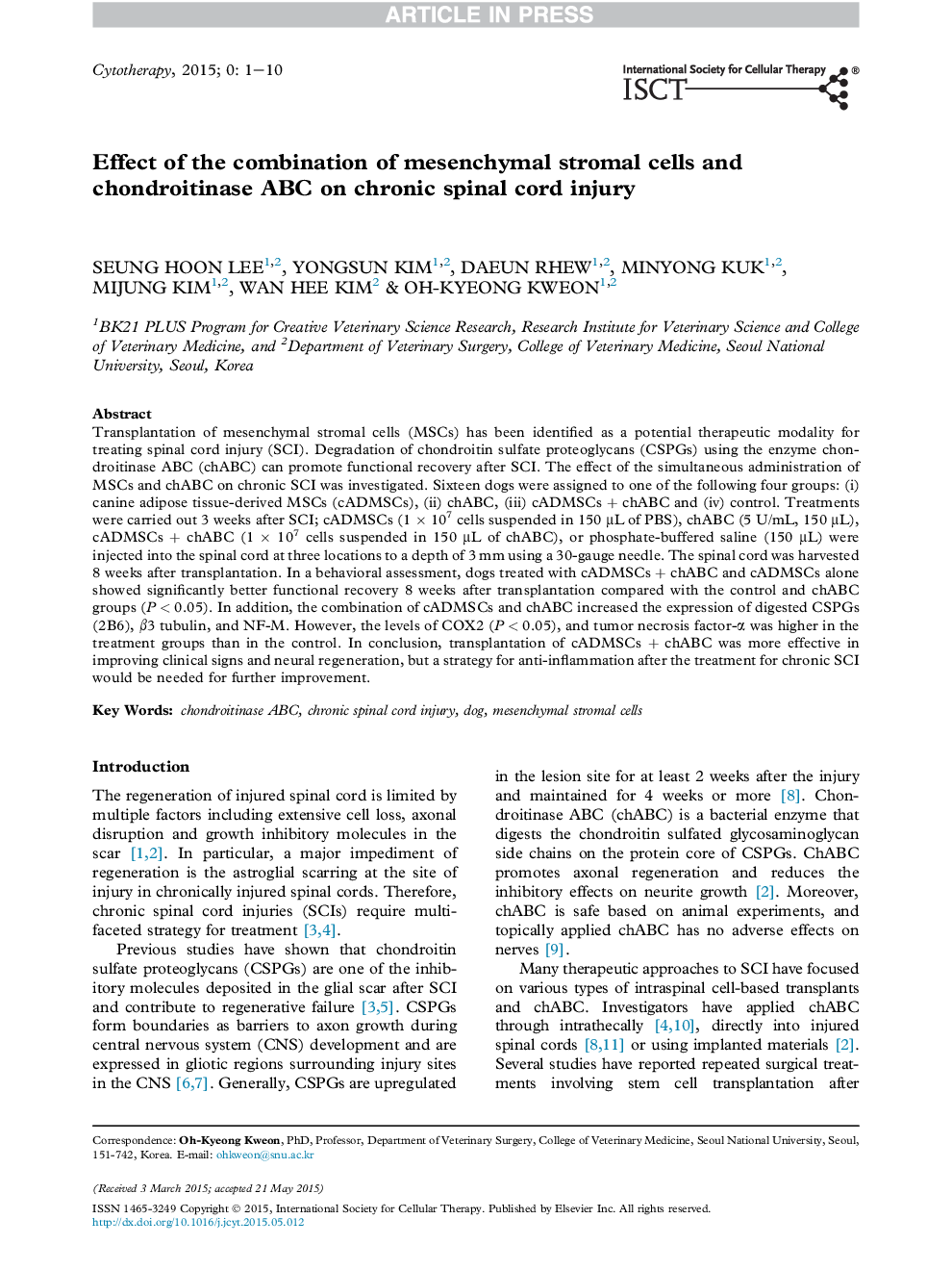| Article ID | Journal | Published Year | Pages | File Type |
|---|---|---|---|---|
| 10930486 | Cytotherapy | 2015 | 10 Pages |
Abstract
Transplantation of mesenchymal stromal cells (MSCs) has been identified as a potential therapeutic modality for treating spinal cord injury (SCI). Degradation of chondroitin sulfate proteoglycans (CSPGs) using the enzyme chondroitinase ABC (chABC) can promote functional recovery after SCI. The effect of the simultaneous administration of MSCs and chABC on chronic SCI was investigated. Sixteen dogs were assigned to one of the following four groups: (i) canine adipose tissue-derived MSCs (cADMSCs), (ii) chABC, (iii) cADMSCs + chABC and (iv) control. Treatments were carried out 3 weeks after SCI; cADMSCs (1 à 107 cells suspended in 150 μL of PBS), chABC (5 U/mL, 150 μL), cADMSCs + chABC (1 à 107 cells suspended in 150 μL of chABC), or phosphate-buffered saline (150 μL) were injected into the spinal cord at three locations to a depth of 3 mm using a 30-gauge needle. The spinal cord was harvested 8 weeks after transplantation. In a behavioral assessment, dogs treated with cADMSCs + chABC and cADMSCs alone showed significantly better functional recovery 8 weeks after transplantation compared with the control and chABC groups (P < 0.05). In addition, the combination of cADMSCs and chABC increased the expression of digested CSPGs (2B6), β3 tubulin, and NF-M. However, the levels of COX2 (P < 0.05), and tumor necrosis factor-α was higher in the treatment groups than in the control. In conclusion, transplantation of cADMSCs + chABC was more effective in improving clinical signs and neural regeneration, but a strategy for anti-inflammation after the treatment for chronic SCI would be needed for further improvement.
Related Topics
Life Sciences
Biochemistry, Genetics and Molecular Biology
Cell Biology
Authors
Seung Hoon Lee, Yongsun Kim, Daeun Rhew, Minyong Kuk, Mijung Kim, Wan Hee Kim, Oh-Kyeong Kweon,
